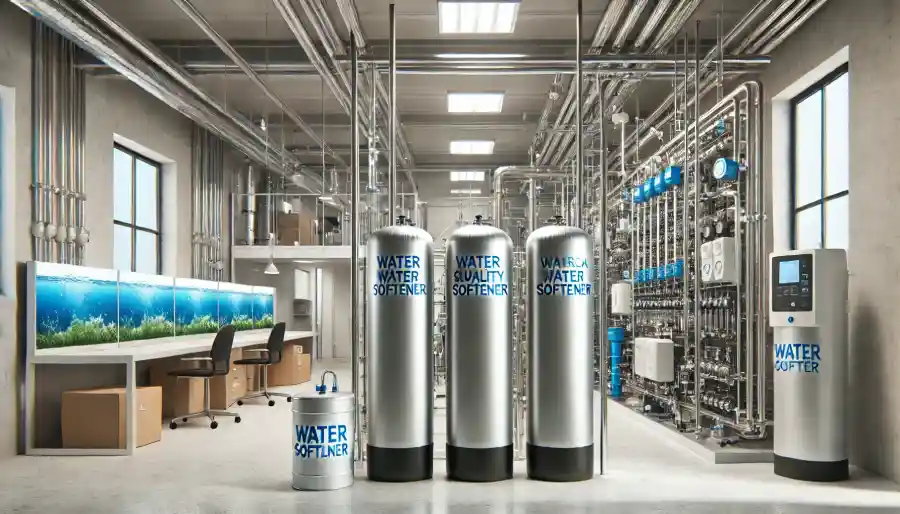In various parts of the world, the quality of water varies significantly. Hard water might be abundant in certain regions, which can be problematic for businesses. The numerous adverse effects of hard water can be countered by a solution: commercial water softener systems.
In this article, we delve into what a water softener system is and why your business might benefit from one.
Understanding Commercial Water Softeners
Commercial water softeners are systems specifically designed to remove minerals like calcium and magnesium that make water hard. These systems use a process known as ion exchange, wherein these minerals are replaced with less harmful ions like sodium or potassium, rendering the water soft.
The functionality of these systems is crucial to the operations of many businesses. Whether it be a restaurant, laundromat, or hotel, hard water can affect overall productivity and profitability.
Businesses that rely heavily on water as a significant operational resource should never underestimate the potential harm that hard water can cause. However, implementing commercial water softener systems can mitigate this risk.
This step to improve the quality of water benefits not only the business operations but also its overall client satisfaction by providing a visible difference in the quality of its products or services.
Implications of Hard Water for Your Business

Hard water can have serious consequences for various aspects of your business. When used in cleaning processes, hard water leaves behind mineral deposits, leading to limescale buildup. This buildup can severely hamper the functionality of equipment.
For businesses in the hospitality or food industry especially, these mineral deposits can affect the taste of beverages like coffee and tea, and even food products.
Plumbing issues caused by limescale buildup can impact operational efficiencies. These breaks, leaks, and blockages caused by the mineral build-up can lead to increased maintenance costs.
Additionally, hard water can cause business’s utility bills to spike due to increased energy use. By reducing the efficiency of water heaters, the cost of heating water increases.
Benefits of a Commercial Water Softener for Your Business
Implementing a commercial water softener system can cultivate numerous advantages for your business. Your appliances and equipment will last longer due to the reduction in limescale buildup, thereby reducing frequent replacements and repairs.
The efficiency of water heating is improved dramatically, which means you will consume less energy, translating to lowering your utility bills. This makes water softeners a sound investment in the long term.
Improved water quality can drastically enhance the tastes of food and beverages, providing an immediate and noticeable improvement to your customers’ experience.
Lastly, softer water can lead to cleaner laundry and shiny, spotless dishware, enhancing your business’s reputation for cleanliness and attention to detail.
Signs Your Business Needs a Commercial Water Softener

You might be wondering if your business needs a water softener. If you notice a constant need for appliance repairs, limescale buildup, or poor-tasting beverages, these are strong indications of hard water problems.
Additionally, frequent plumbing issues, increases in utility bills, or poor washing results could imply the need for a water softener.
A drop in customer satisfaction levels too can sometimes be traced back to the quality of water used in the services or products provided.
If you’re experiencing any of these signs, it’s probably time to consider installing a commercial water-softening system.
Choosing the Right Commercial Water Softener for Your Business
Selecting a suitable commercial water softener requires you to consider various factors. Determine the hardness of your water supply through testing to understand the level of softening required.
It is also necessary to estimate the volume of water your business uses on a daily basis. This estimation helps in selecting a system with the right capacity.
Evaluating different models for durability, maintenance requirements, and warranty can ease long-term management. Remember, a water softener is an investment. It is wise to spend more upfront for a reliable system than on frequent repairs in the future.
Lastly, consult with professionals or experienced suppliers about your specific needs and concerns to decide the best option.
Altogether, it’s clear that the installation of a commercial water softener has various benefits for many businesses. From extending the lifespan of your appliances to enhancing the customer experience, these systems are a wise and long-term investment.

